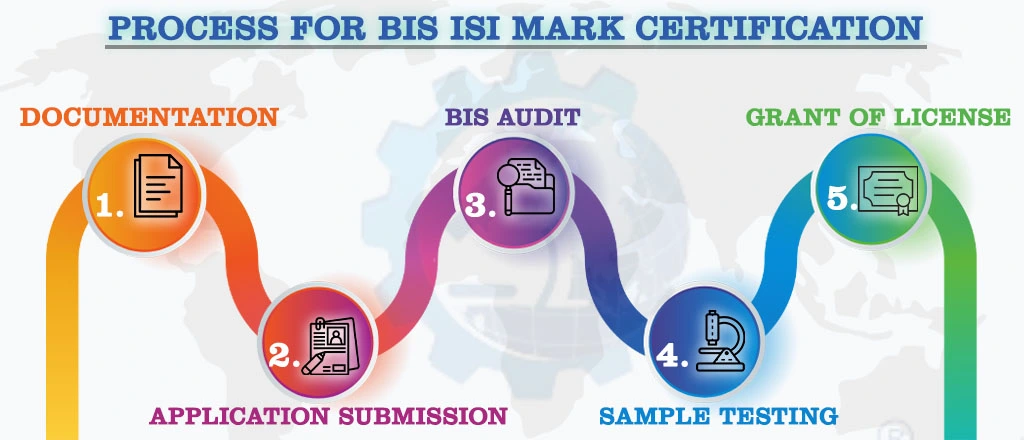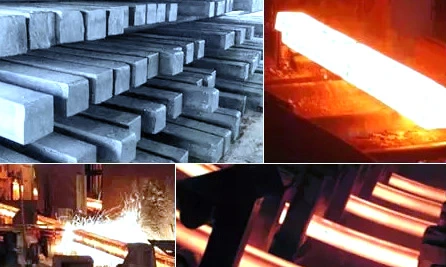BIS CERTIFICATION FOR STOCK FOR FORGINGS
IS 13352:1992
In this competitive scenario, it isn't easy to survive in the market without a standard quality and certified product. BIS license may also be required to sell products in the Indian market.
To get BIS certification and produce a standard quality product, the manufacturer must ensure that their product must follow the specified Indian standard.
Let’s take a closer look at IS 13352:1992 for forgings.
This standard specifies the technical and delivery conditions for plain carbon and low alloy grade steels in the form of bars, billets, and other shapes produced through a continuous cast route, either by rolling or forging.
The steels covered by this standard are generally intended for use as a raw material by the forging industry in the manufacture of automobiles or other engineering components.
The general requirements for material supply shall be in accordance with IS 1387: 1967.The reduction ratio between the cast product and the forging stock should be at least 6: 1. The standard specifies that the stock should be free of any harmful internal defects. Higher or lower reduction ratios for specific applications can be agreed upon between the purchaser and the manufacturer at the time of inquiry and order.
The stock rolled/forged continuously cast steel must be free of harmful surface and subsurface defects that could impair the steel's forgeability or end-use. The continuously cast billet or bloom must be suitably conditioned before rolling to ensure product quality.
Stock rolled/forged continuously cast steel must also be free of harmful internal defects such as corner cracks, half-way cracks, centre looseness, concentrated pinholes, voids, flakes, and so on.
The hardness and mechanical properties for respective grades will be as per the relevant Indian standard for which the steel is intended. Hardness and mechanical tests must be performed to ensure product quality.
The chemical composition, mechanical properties, and grain size must all meet the standard's requirements. The foreign stock rolled from the continuously cast product must meet a high standard of surface quality, and size tolerances must be in accordance with 3739:1987.
Marking:
Marking shall be done in accordance with IS 13352:1992. The material may also be marked with the standard mark (ISI Mark). The standard mark (ISI mark) must be applied to the material. The manufacturer must obtain a BIS license from the Bureau of Indian Standards to use a standard mark (ISI Mark). The BIS issues a license based on a successful evaluation of the manufacturing infrastructure, quality control, testing capabilities, and manufacturing process.

NOTE:
For Detailed Information about the Procedure for BIS ISI Certification
Visit :
• ISI Mark Certification for Domestic Manufacturers• ISI Mark Certification for Foreign Manufacturers
Conclusion:
If a product falls under the scope of the BIS Conformity Assessment Scheme, All the manufacturers, importers, and foreign entities must obtain BIS ISI Certification. The Bureau may cancel the License if the product fails to meet certification requirements.
Aleph INDIA has been serving the industry as a single-window operator for all product regulatory compliance. We can assist importers or manufacturers in meeting all criteria for importing or selling a product in the Indian market.
International Audits & Participation
Testimonials
BIS REGISTRATION FOR ELECTRONIC & IT PRODUCT
In the era of globalization, world trade is growing rapidly and henceforth, Manufacturing and Import/Export businesses are also growing drastically...View More
BIS CERTIFICATE FOR FOREIGN MANUFACTURER
The Economy of India-the fastest developing economy on the globe with the capabilities that help it matches up with the biggest international...View More
PRODUCT CERTIFICATION SCHEME (ISI MARK) FOR DOMESTIC MANUFACTURERS
Anything a person buys from food to cars, clothes to electronics, branded to unnamed products there is always a question that wanders in one’s...View More
WIRELESS PLANNING AND COORDINATION (WPC)
WPC: Wireless means communication done from one point to another point without the wires and cables. Electromagnetic waves carry the ...View More
BUREAU OF ENERGY EFFICIENCY (BEE) CERTIFICATE
BEE CERTIFICATE: Energy is the future, and its conservation is the way of the bright future. Everyone claims the environment is important...View More
E-WASTE MANAGEMENT
E-waste is one of the world's fastest-growing trash streams. We currently manufacture almost 50 million tones of it each year...View More
Request a call back.
Would you like to speak to one of our Senior Technical advisers over the phone? Just submit your details and we’ll be in touch shortly. You can also email us if you would prefer.
BIS REGISTRATION FOR ELECTRONIC & IT PRODUCT
In the era of globalization, world trade is growing rapidly and henceforth, Manufacturing and Import/Export businesses are also growing drastically...View More
BIS CERTIFICATE FOR FOREIGN MANUFACTURER
The Economy of India-the fastest developing economy on the globe with the capabilities that help it matches up with the biggest international...View More
PRODUCT CERTIFICATION SCHEME (ISI MARK) FOR DOMESTIC MANUFACTURERS
Anything a person buys from food to cars, clothes to electronics, branded to unnamed products there is always a question that wanders in one’s...View More
WIRELESS PLANNING AND COORDINATION (WPC)
WPC: Wireless means communication done from one point to another point without the wires and cables. Electromagnetic waves carry the ...View More
BUREAU OF ENERGY EFFICIENCY (BEE) CERTIFICATE
BEE CERTIFICATE: Energy is the future, and its conservation is the way of the bright future. Everyone claims the environment is important...View More
E-WASTE MANAGEMENT
E-waste is one of the world's fastest-growing trash streams. We currently manufacture almost 50 million tones of it each year...View More
View All Services
Request a call back.
Would you like to speak to one of our Senior Technical advisers over the phone? Just submit your details and we’ll be in touch shortly. You can also email us if you would prefer.






























